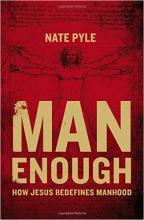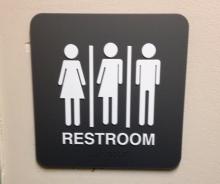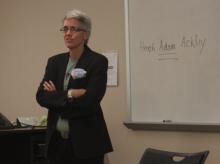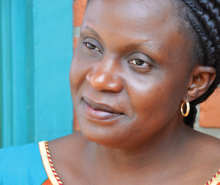Gender

Often I wonder, what is it about me that puts me at the table? I love my x chromosomes and femininity; being a woman is an amazing thing! But in these circles, they seem to come with a cost. No, I’ve not been barred from sitting at the leadership table, but am I only here because I don’t have two other things I longed for – a husband/partner to share life with and children to love and care for and call my own.

“When I see you, I don’t see color,” is something white women have said to me for decades. When heard from white women I see as sisters in Christ, these words erase me. For years I tried responding. I might say, “I get that you are refusing to attribute to me the bad things you have heard about people of color,” to which might come the response: “Oh no! I was raised to accept everyone!” Or I might say, “I know you mean that as a compliment,” and she might say, “I really mean it; I don’t see your color!”

As an Asian-American activist, I must constantly negotiate what it means to be a woman faith leader – all while challenging misconceptions of the “model minority myth” and the “otherization” of my identity in a dominant culture that often sees anything other than whiteness as foreign, exotic, or suspect. And yet, I know that my experiences do not pale in comparison to the hardships of those experienced within the greater sisterhood.

MOST CULTURES have ways to initiate boys into manhood. Being a man is thus seen as an earned status that must be maintained, which can generate tremendous anxiety. (This is similar to what Simone de Beauvoir observes in The Second Sex about being a woman—one is not born but rather becomes one.) I’ve felt this anxiety myself in social spaces where masculinity is outside of the norm: I’m forced to think through how I am a man and what that means.
Nate Pyle confronts some of this anxiety in Man Enough. He explores how being rooted in Christ can seat the Christian man’s identity more firmly in Jesus. Rather than trying to frantically maintain any particular form of masculinity, we can rest our identity in Christ.
This is key to freeing us from ridiculous posturing and status games. Pyle fleshes his argument out not only through scripture and ethical reflection but also by powerfully recalling his own personal development as a man.
Still, as Pyle puts it, “saying Jesus defines what it means to be a man is easy; actually defining manhood in light of Jesus is harder.” We have so many pictures of Jesus in the New Testament, from the righteously angry Jesus condemning the false teachers of his day to the Christ restraining his power and submitting to death on a cross. Perhaps, Pyle argues, this is the point: Jesus is complex, so any picture of how to be a man (or a woman) needs to be similarly complex.

Christians — particularly those of the more conservative variety — often oppose accommodations for transgender persons. But these believers are having a very important conversation in the wrong direction. When trying to understand transgender issues, Christians should start with the personal, not political. When Christians begin by committing to political goals rather than educating themselves on the complicated, sensitive nuances of this matter, they often come off looking privileged, mean, or just flat-out clueless.
But transgender issues are bigger than so-called bathroom bills and similar legislation. Society is beginning to see these issues as personal matters that affect the real lives of real people with real hurts.
A few Christians out there are, thankfully, trying to think deeply about transgender people. Mark Yarhouse is a professor at Regent University School of Psychology and Counseling and author of Understanding Gender Dysphoria: Navigating Transgender Issues in a Changing Culture. Megan DeFranza is a visiting researcher at Boston University’s School of Theology and author of Sex Difference in Christian Theology: Male, Female, and Intersex in the Image of God. Here we discuss the complexity of transgender issues often overlooked by Christians.

AS WE APPROACH A PRESIDENTIAL election in which each candidate’s gender is sure to be discussed, it’s worth evaluating the automatic assumptions we—yes, all of us—make when it comes to women, men, and the meaning we attribute to gender. These assumptions include everything from outright sexism to subtler forms of gender bias, such as the knee-jerk association of men with “competence” and “gravitas,” women with “incompetence” and “emotion.”
“The battle for women to be treated like human beings with rights to life, liberty, and the pursuit of involvement in cultural and political arenas continues, and it is sometimes a pretty grim battle,” writes Rebecca Solnit in the title chapter of Men Explain Things to Me, a 2014 collection of essays that helped coin the term “mansplain.” “This is a struggle that takes place in war-torn nations, but also in the bedroom, the dining room, the classroom, the workplace, and the streets.”
I would add, of course, that this battle also takes place in the church, our spiritual homes. After all, for women this is a struggle that’s older than feminism, perhaps as old as our faith traditions themselves. So how, exactly, can we end the battle?
The answer, it seems, lies in understanding the difference between explicit and implicit bias, the former resulting from deliberate stereotypes, the latter a growing topic in social science that doesn’t absolve us of guilt but helps us understand how biases of all kinds have been so difficult to identify, name, and change.

Khatoon Shaikh had no formal education, never worked outside the home, and lived in the kind of neighborhood that many people might call a slum.
But when Shaikh witnessed her sister-in-law victimized, first at the hands of a violent husband, and again by a patriarchal justice system, she took charge.
Shaikh started her own Shariah adalat, a court based on Islamic law, just for women.
“We needed a place where women’s voices could be heard,” the mother of seven said.
That was 20 years ago. Since then, the court has moved from Shaikh’s home to a two-room office in the north Mumbai neighborhood of Bandra. And it now operates within a broader organization called BMMA, or Indian Muslim Women’s Movement, which Shaikh helped form in 2007.

I attended a funeral last week and was struck by something that happened at communion.
The church was packed for a loving man who had touched many lives with his kindness. People from varied backgrounds and faiths came to celebrate his life and support his family. The eulogy noted that he never turned anyone away.
At communion time, several young adults from a different denomination got in line. When the first young man got to the priest, he received a question instead of a communion wafer. The priest said something to him. The young man looked surprised and shook his head. The priest traced a cross on his forehead and sent him away breadless.
On a day of shared grief, the young man had given the wrong answer to the age-old question: Are you one of us?


A group of Christian lawyers plans to sue two medical doctors who have raised a storm of controversy for arranging the abortion of female fetuses because the parents wanted boys.
Andrea Williams, CEO of the London-based Christian Concern, said her group would file suit against the doctors since the government declined to charge them.
In an Oct. 7 letter to the attorney general, Director of Public Prosecutions Keir Starmer said the Abortion Act of 1967 “does not expressly prohibit gender specific abortions.”

A California Christian university has asked a professor who was once its chair of theology and philosophy to leave after he came out as transgender.
Heather Clements taught theology at Azusa Pacific University for 15 years, but this past year, he began referring to himself as H. Adam Ackley. “This year has been a transition from being a mentally ill woman to being a sane, transgendered man,” he said.
Ackley, who is in his third year of a five-year contract at a school that does not use the tenure system, said university policies seem to be silent about transgender issues, except that “Humans were created as gendered beings.”
WE OWE A lot to Anne-Marie Slaughter. Last summer, the Princeton University professor’s Atlantic article “Why Women Still Can’t Have It All” kicked off an overdue, protracted national-scale debate on the difficulty of juggling the demands of professional success and committed parenting, the likes of which we haven’t had in a while. Shortly after Slaughter’s polemic hit newsstands, Marissa Mayer, just 37, was named CEO of Yahoo!, becoming the youngest CEO of a Fortune 500 company at the time and stirring controversy when she revealed that she was seven months pregnant. (Months later, she banned telecommuting companywide and was sharply criticized by some as being “anti-parent.”)
Then, Facebook COO Sheryl Sandberg got in on the action, publishing in March the ambitiously titled Lean In: Women, Work, and the Will to Lead. In the following months, it sat at the top of bestseller lists, with staggering sales triggering multiple printings. Sandberg, one of the wealthiest women in the world, donates all related profits to her newly established nonprofit, also called Lean In, encouraging women to form consciousness-raising Lean In Circles, in which they’ll discuss money and maternity.
Suddenly, there was a lot of estrogen in the air. A year into this cultural conversation, we’re still trying to make sense of what it all means.
First, a caveat. I don’t know anyone, woman or man, naïve enough to believe that any of us can have whatever “it all” entails. When Slaughter’s indignant article set off a firestorm about the impossibility of work-life balance, I was happy (as I always am) to witness a (mostly) thoughtful discussion unfold. But I was and still am miffed that anyone thinks women were sold a false bill of goods. Who was that mightily influential yet terribly mysterious person who promised us everything we ever wanted? How did we let him (it must have been a “him”) get away with spreading such a vicious lie, and why do we allow it to persist?

I am privileged to have a body that fits my gender, and for the majority of my life I was unaware of this ingrained and assumed personal and public privilege. As is the case with many in our world, during my adolescent years I never realized that “gender” and “sex” were two different aspects of my male identity, or in the words of Virginia Prince, I was unaware that “… gender is what’s above the neck and sex is what’s below the neck.” In light of these often ignored differences between gender and sex, I have come to recognize that many in our world do not experience full harmony between the two, and the result is a significantly misunderstood and strikingly marginalized transsexual and transgendered community.
While the differences between gender and sex are complicated, and the various distinctions between cultural and biological identity constructs are ongoing, The National Center for Transgender Equality estimates that 1 percent of all U.S. citizens are “trans.” However, as gender variance is rarely discussed in mainstream society, it would appear that far too many continue to make false generalizations based upon sensationalized media accounts of cross-dressing and transsexuality. As stated by Deborah Rudacille in The Riddle of Gender: Science, Activism, and Transgender Rights:
Gender variance still seems to be considered a more suitable topic for late-night talk show jokes than for journals of public health and public policy, even though a recent needs assessment survey in Washington, D.C., estimated that the median life expectancy of a transgendered person in the nation’s capitol is only thirty-seven years … Though many are far better off materially that the subjects of the Washington, D.C., study, transgendered and transsexual people of every social class and at every income level share many of the same vulnerabilities. Public prejudices make it difficult for visibly transgendered or transsexual people to gain an education, employment, housing, or health care, and acute gender dysphoria leaves people at high risk for drug abuse, depression, and suicide.

THE DEATH OF a college student who had been gang-raped in Delhi provoked outrage and anger. More than 2 million Indian students joined a movement to protest the rising violence against women in India. According to official data, reported cases of rape have more than doubled in the past 20 years, and women are the victims of a high proportion of other violent crimes.
But there's another side to this story. "Almost as shocking as the Delhi gang rape has been the range of voices that have sounded after it," wrote Sagarika Ghose, a TV journalist and commentator. "Patriarchy is chillingly omnipresent." Rather than blaming those who attack women, leaders in some Indian villages blame Westernization, liberal consumerism, growing individualism, or even the women themselves—because they wear "skimpy clothes," talk on mobile phones, and work outside the home, according to South Africa's Mail & Guardian newspaper.
For 19-year-old Kanika Sharma, these leaders miss the point. "It is all about the mentality of the boys," Sharma told the Mail & Guardian. "They think because they are men, they can do anything. But girls should get equal rights and opportunities."
Sharma speaks while standing under a sign that says: Being a woman should not make you feel vulnerable. But sadly, throughout the world women do feel vulnerable.
Before I traveled to the Democratic Republic of Congo (DRC)—described as the "rape capital" of the world—I studied reports on rape as a weapon of war. In the DRC rebel soldiers have brutally raped thousands of women. They know that if they rape enough women and girls, they can destroy the social fabric of an entire community.
On Monday, Olivier De Schutter, U.N. special rapporteur on the right to food, submitted his report Gender and Food Security to the U.N. Human Rights Council, adding to the mountains of evidence that if you empower women with education and independent rights, they can substantially, cost-effectively, and generationally reduce hunger and malnutrition. The Guardian's Poverty Matters Blog reported:
The notion that gender equality can play an important role in reducing hunger and malnutrition has gained increasing traction in development circles. The UN's Food and Agriculture Organisation claimed in its 2010-11 State of Food and Agriculture report that equal access to agricultural resources could reduce world hunger by 12-17%. Gender and food security also came under the spotlight in the 2012 edition of the World Bank's flagship annual report, where it was argued that parity in areas including landrights, employment and political representation could improve development outcomes.
These ideas are not new. Obliged to raise children, care for sick and elderly people, and run households – work that, valued in monetary terms, would be equivalent to 15% of GDP in low-income countries, rising to 35% in middle-income countries – it has long been argued that women are being denied education opportunities, marginalising them both economically and politically. The challenge lies in convincing policymakers to do something about these multiple challenges.
Says De Schutter:
"We must address how gender roles are being defined within the family and who makes the decisions in government. ...We must refuse to take existing gender roles as givens, and instead allow women to shift the burden to men;where possible, giving women access to more opportunities and better training and education, and exposure to something other than the traditional responsibilities they have been assuming."
"If local NGOs and women's organisations and unions mobilise, using the report to put pressure on the government from below, that will be even more effective than international pressure."

RECENT MOVIES have been dominated by a surprising theme: the exploration of gender through black goo in outer space, strippers in Florida, and a red-haired teenage rebel in mythical Scotland. Detours among British ex-pats in India in The Best Exotic Marigold Hotel, a genetically modified high school student in New York in The Amazing Spider-Man, and a scout troop on a coastal New England island in the fabulous Moonrise Kingdom added flavor to the mix. But it was the deceptively simplest of films that caused me to think most about what it means to be a human being, and how the fact of gender must be wrestled with, negotiated, and contested rather than assumed.
The wonderful thing about Pixar’s Brave is how it negates the historic disempowerment of female fairy tale protagonists. This is a new kind of Disney princess: one who doesn’t need a man to save her, nor homicidal violence to achieve victory; one who develops a healthy relationship with her mother; one, ultimately, who takes responsibility for her mistakes, integrating Snow White purity with Mulan’s steel. It’s also a physically beautiful movie, delightfully entertaining, and alive for adults and kids alike.
On the other hand, the world of Magic Mike, wherein Channing Tatum relives his earlier career as a bachelorette-party treat, is a film about lost men who play on stereotypical female desire for tips. The soulful yearning for intimate connection that Mike embodies is the most emotionally resonant part of a film otherwise of average interest.

At Wild Goose, I was humbled to be among justice-seeking Christians seeking to follow in the footsteps of Jesus.
I see a deep connection between the personal practice of simple living and activism for social change. While I struggle to live justly, particularly in my everyday purchasing decisions (as Julie Clawson advises!), I often don’t live as simply as I could. Sometimes I take shortcuts, going out for lunch, driving my car to work, or buying something to solve a problem that actually requires time I lack because of overcommitment.
As Mark Scandrette points out, for many of us, our slavery to time and money is a choice. We could cut much from our lives and live more simply. We are the global 1 percent.
It’s this voluntary reconsideration of wealth and rediscovery of our Christian justice tradition that made Wild Goose such an amazing experience.

It’s been a mind-boggling fortnight at the Internet water cooler. Kony 2012. Mike Daisey’s dubious portrayal of Apple’s manufacturing practices abroad. Questions of whether the “Christian Movie Establishment” is “out to get” Blue Like Jazz … and an Amazon petition to let Rachel Held Evans use the word “vagina” in her forthcoming book, The Year of Biblical Womanhood.
Running through each of these stories and the surrounding debate are similar themes: truth, storytelling, power, persuasion. The online conversation is often vicious and acrimonious, reflecting a trend that’s spurred some writers to leave reader comments unread.
Adding to the intensity of the discussions is that almost each of these controversies involves an effort to change something: the Ugandan geo-political scene; unethical manufacturing practices; ways of talking about religious experience; “Christian” expectations for women. That’s not to say these creators set out with those ends as their foremost goal, but their projects were certainly meant to be more than beautiful or useful.

When our parents teach us at a very young age to say the magic words — please and thank you — they give us our first lessons in morality. Manners are the first step to morality. Etiquette is the first gesture of ethics. Manner and morals derive from the mores of a society. Etiquette derives from the ethos and ethics of a society.
When Arizona Governor Jan Brewer wagged her finger in President Obama’s face upon his arrival in her state, she demonstrated not only a disregard for the Office of the President, but she simply displayed bad manners.
In the United States, we do not have a monarch that embodies the state in his or her person. In the United States, that person is the president of the United States. He and the vice president are the only two elected officials who are elected nationwide. Thus, the president is not only the head of the executive branch of government, but he is the representative of the entire country.
Governor Brewer’s demeanor toward the president was inappropriate. However, the deeper question is why would this woman think it is appropriate to put her finger in anyone’s face, president or not?
In my vision of the emancipated world, women will not be sitting at the top of some profit-driven society, relishing power and basking in material wealth. In the reign of God, women will be able to take the time we need to be mothers and daughters without having to let go of our more far-reaching aspirations. And men will have the time they need to be fathers and sons. We will love and value ourselves without playing into the false worldly notion that we can and should be "number one." And we won't be afraid to say "NO," when we're tired.